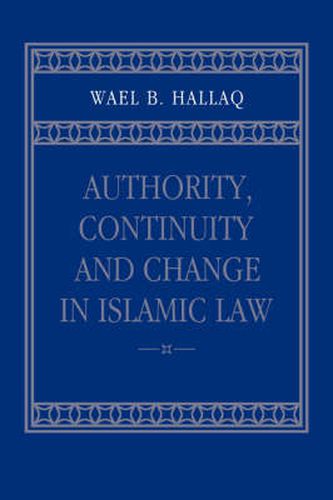Readings Newsletter
Become a Readings Member to make your shopping experience even easier.
Sign in or sign up for free!
You’re not far away from qualifying for FREE standard shipping within Australia
You’ve qualified for FREE standard shipping within Australia
The cart is loading…






Wael B. Hallaq is regarded as one of the leading scholars in the field of Islamic law. In a path-breaking new book, the author shows how authority guaranteed both continuity and change in Islamic law. While the role of the law schools in augmenting these processes was of the essence, the author demonstrates that it was the construction of the absolutist authority of the school founder, an image which he suggests was actually developed later in history, that maintained the foundations of school methodology and hermeneutics. The defence of that methodology gave rise to an infinite variety of individual legal opinions, ultimately accommodating changes in the law. Thus the author concludes that the mechanisms of change were embedded in the very structure of Islamic law, despite its essentially conservative nature. This book will be welcomed by specialists and scholars in Islamic law for its rigour and innovation.
$9.00 standard shipping within Australia
FREE standard shipping within Australia for orders over $100.00
Express & International shipping calculated at checkout
Wael B. Hallaq is regarded as one of the leading scholars in the field of Islamic law. In a path-breaking new book, the author shows how authority guaranteed both continuity and change in Islamic law. While the role of the law schools in augmenting these processes was of the essence, the author demonstrates that it was the construction of the absolutist authority of the school founder, an image which he suggests was actually developed later in history, that maintained the foundations of school methodology and hermeneutics. The defence of that methodology gave rise to an infinite variety of individual legal opinions, ultimately accommodating changes in the law. Thus the author concludes that the mechanisms of change were embedded in the very structure of Islamic law, despite its essentially conservative nature. This book will be welcomed by specialists and scholars in Islamic law for its rigour and innovation.